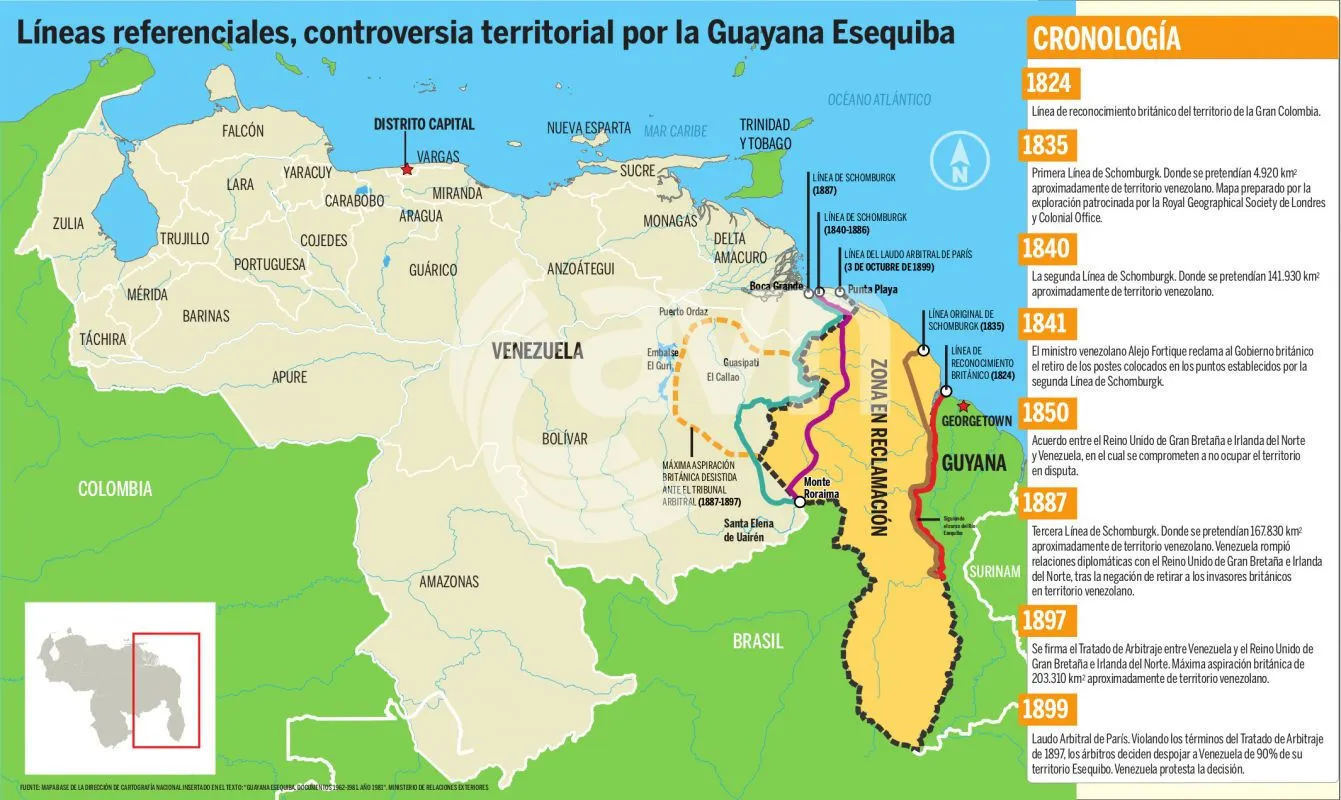Guyana has appealed to the International Court of Justice (ICJ) to stop a Venezuelan referendum about the disputed Esequibo region.
According to the ICJ, Guyana wants to prevent the vote in its current form.
Later on, the government of Guyana said the request aimed to thwart Venezuela’s plan to claim Guyanese territory.
Venezuelan Vice President Delcy Rodríguez called this move extreme.
Venezuela has planned a non-binding vote for December 3. The aim is to establish a province in Esequibo and give its residents Venezuelan citizenship.
Because of the vote’s urgency, Guyana is urging the ICJ for a quick hearing to make a decision.
The Esequibo region is rich in resources and Guyana currently manages it. This control is based on a 1899 decision in Paris, which Venezuela doesn’t accept.
Relations worsened after the discovery of oil fields by U.S. company ExxonMobil in 2015. Recently, tensions spiked again due to new oil exploration licenses.
President Nicolás Maduro of Venezuela clarified that his country doesn’t recognize these licenses.
In summary, the Esequibo region has been a point of contention between Guyana and Venezuela for a long time.
The ICJ agreed in 2020 to oversee the dispute despite Venezuela’s objections. The current tension is intensified by oil discoveries and the upcoming Venezuelan vote.
Both countries are seeking international support, making the situation even more complicated.
Background
The Esequibo dispute dates back over a century and has seen periods of heightened tension.
Originally, both Guyana and Venezuela were colonies, with Guyana under British rule.
A key event occurred in 1899, when an arbitration panel in Paris set boundaries that Guyana adheres to but Venezuela rejects.
Fast forward to 1966, Venezuela and the UK tried to negotiate a settlement before Guyana’s independence, but that didn’t resolve the issue.
The discovery of oil in 2015 by ExxonMobil rekindled the dispute. Both nations have vested interests in this resource-rich region, which complicates diplomatic efforts.
Recent moves, like Guyana seeking ICJ intervention and Venezuela’s planned referendum, indicate that neither side is backing down.
International bodies like the United Nations may need to play a larger role to avoid further escalation.


